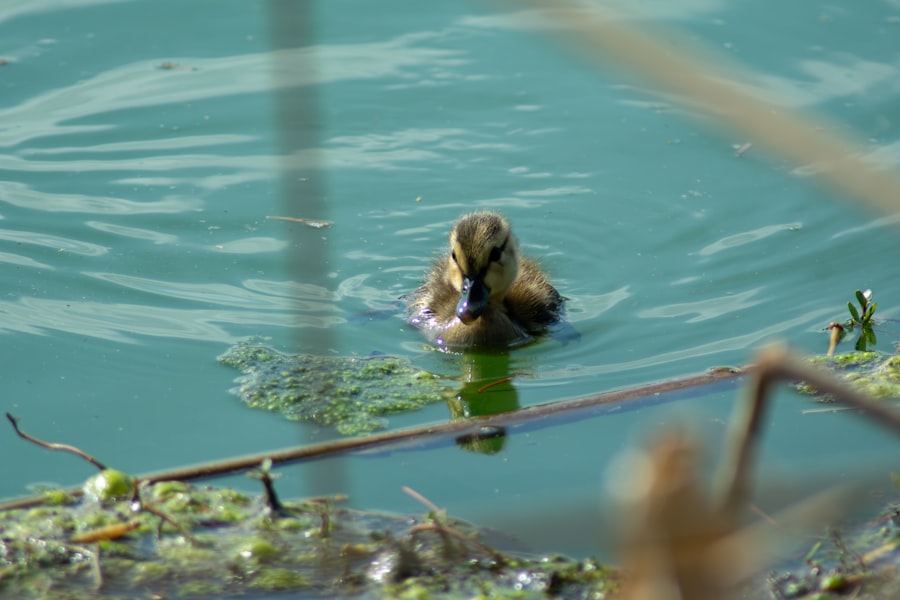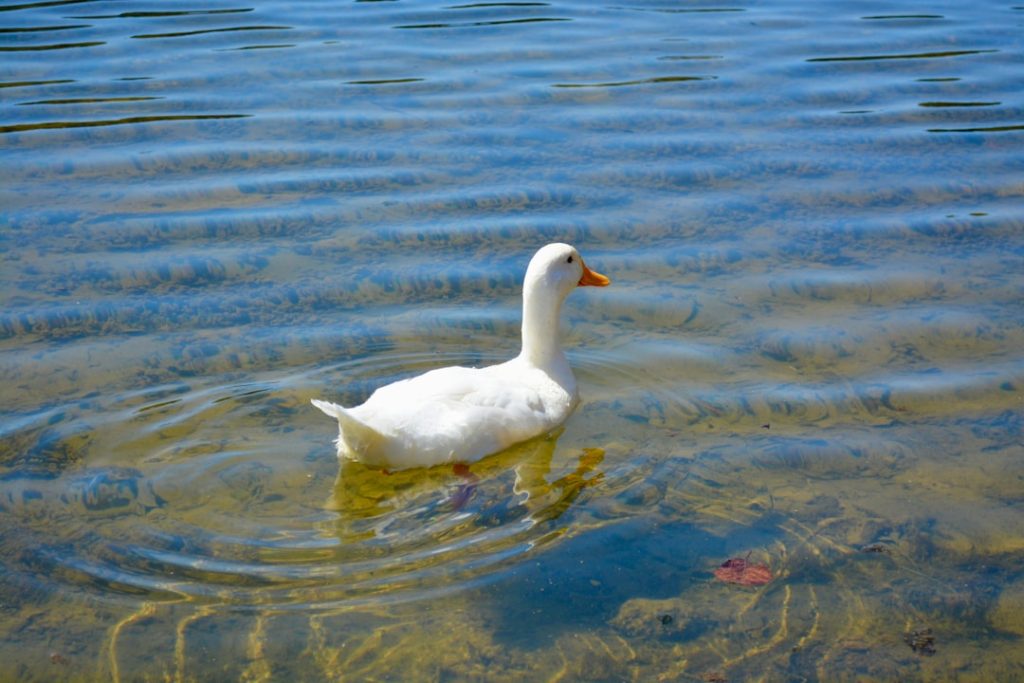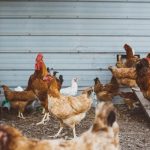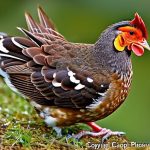Raising ducks and chickens has gained popularity among both homeowners and farmers in recent years. Each species offers distinct advantages and challenges, complicating the decision-making process for potential poultry keepers. Ducks are renowned for their amiable and gregarious nature, while chickens are prized for their egg production and ability to control pests.
This article will examine the key differences between duck and chicken husbandry, including housing and space requirements, nutritional needs, egg-laying capacity, health management, and behavioral characteristics. The information provided will help readers make an informed decision about which poultry species best aligns with their goals and living situation.
Table of Contents
- 1 Housing and space requirements for ducks and chickens
- 2 Feeding and dietary needs of ducks versus chickens
- 3 Egg production and maintenance of ducks and chickens
- 4 Health and care considerations for ducks and chickens
- 5 Noise and behavior differences between ducks and chickens
- 6 Which is easier to keep, ducks or chickens?
- 7 FAQs
Key Takeaways
- Ducks require more space and access to water for swimming, while chickens need a secure coop for nesting and roosting.
- Ducks have a higher need for water and a diet that includes more protein, while chickens can thrive on a diet of grains and insects.
- Ducks lay fewer eggs but are less prone to health issues, while chickens are prolific layers but require more maintenance and are susceptible to diseases.
- Ducks are generally hardier and more low-maintenance, while chickens can be more prone to health issues and require more regular care.
- Ducks are quieter and less likely to cause disturbances, while chickens can be noisier and more prone to pecking and aggressive behavior.
Housing and space requirements for ducks and chickens
Duck Housing Requirements
Ducks require more space than chickens due to their larger size and need for water. A duck coop should provide at least 4 square feet of space per duck, with access to a pond or shallow water source for swimming and foraging. Additionally, ducks need protection from predators, so a secure coop with a fenced-in yard is essential.
Chicken Housing Requirements
On the other hand, chickens can thrive in smaller coops, requiring only 2-3 square feet of space per bird. They also need a roosting area and nesting boxes for laying eggs. While chickens do not require access to water for swimming, they do need a dust bath area for grooming.
Common Requirements for Both Ducks and Chickens
Overall, both ducks and chickens require a clean and well-ventilated living space to thrive. They need protection from predators, so a fenced-in yard or secure coop is essential. Additionally, both ducks and chickens need access to outdoor areas for exercise and foraging.
Feeding and dietary needs of ducks versus chickens

Feeding and dietary needs differ between ducks and chickens. Ducks are omnivores and require a diet that includes a balance of protein, grains, and greens. They also need access to water for drinking and foraging.
Ducklings require a higher protein diet to support their rapid growth, while adult ducks can thrive on a lower protein diet supplemented with greens and grains. Additionally, ducks need access to grit to aid in digestion, as well as access to water for swimming and foraging. On the other hand, chickens are omnivores that require a diet high in protein to support egg production.
They also need access to grit for digestion and calcium for strong eggshells. Chickens can thrive on a diet of commercial feed supplemented with kitchen scraps and greens. In contrast, chickens are omnivores that require a diet high in protein to support egg production.
They also need access to grit for digestion and calcium for strong eggshells. Chickens can thrive on a diet of commercial feed supplemented with kitchen scraps and greens. Additionally, chickens need access to water for drinking and foraging.
Ducklings require a higher protein diet to support their rapid growth, while adult ducks can thrive on a lower protein diet supplemented with greens and grains. Ducks are omnivores that require a diet that includes a balance of protein, grains, and greens. They also need access to grit to aid in digestion, as well as access to water for swimming and foraging.
Overall, both ducks and chickens require a balanced diet to support their health and well-being.
Egg production and maintenance of ducks and chickens
Egg production is one of the main reasons people choose to keep ducks or chickens. Ducks are known for their high egg production, with some breeds laying up to 300 eggs per year. Duck eggs are larger than chicken eggs and have a richer flavor, making them a popular choice among bakers and chefs.
Additionally, duck eggs have a longer shelf life than chicken eggs due to their thicker shells. However, ducks can be messy layers, often laying their eggs in water or mud if not provided with proper nesting boxes. On the other hand, chickens are also prolific layers, with some breeds laying up to 300 eggs per year.
Chicken eggs are smaller than duck eggs but are versatile in cooking and baking. In contrast, chickens are also prolific layers, with some breeds laying up to 300 eggs per year. Chicken eggs are smaller than duck eggs but are versatile in cooking and baking.
Additionally, chicken eggs have a shorter shelf life than duck eggs due to their thinner shells. However, chickens are more consistent layers than ducks and are less likely to lay their eggs in water or mud. Overall, both ducks and chickens are valuable for their egg-laying abilities, providing a sustainable source of protein for their owners.
Health and care considerations for ducks and chickens
When it comes to health and care considerations, both ducks and chickens require regular maintenance to ensure their well-being. Ducks are generally hardy birds but are susceptible to respiratory infections if kept in damp or poorly ventilated conditions. Additionally, ducks need access to water for swimming and grooming to prevent skin issues and mites.
It is important to regularly clean their living space and provide fresh bedding to prevent disease. On the other hand, chickens are prone to respiratory infections as well as parasites such as mites and lice. They also need regular access to dust baths for grooming.
In contrast, chickens are prone to respiratory infections as well as parasites such as mites and lice. They also need regular access to dust baths for grooming. Additionally, chickens need protection from predators such as foxes, raccoons, and birds of prey.
It is important to regularly clean their living space and provide fresh bedding to prevent disease. Ducks are generally hardy birds but are susceptible to respiratory infections if kept in damp or poorly ventilated conditions. Additionally, ducks need access to water for swimming and grooming to prevent skin issues and mites.
Overall, both ducks and chickens require regular maintenance and care to ensure their health and well-being.
Noise and behavior differences between ducks and chickens

Foraging and Pest Control
Additionally, ducks are excellent foragers and can help control pests such as slugs and snails in the garden.
Comparing Noise Levels
On the other hand, chickens are more vocal than ducks, often crowing loudly at dawn or when they lay eggs. They also cluck and squawk throughout the day, which may be disruptive in residential areas.
Chickens are valuable for their pest control abilities, scratching at the ground to find insects and larvae. However, chickens also form social hierarchies within their flock, which can lead to aggression or bullying among birds. Overall, both ducks and chickens have unique behaviors that should be considered when deciding which is best suited for your living situation.
Which is easier to keep, ducks or chickens?
In conclusion, the decision of whether to keep ducks or chickens ultimately depends on your individual needs and lifestyle. Ducks are valued for their high egg production, friendly nature, and pest control abilities but require more space and access to water. Chickens are prolific layers with lower space requirements but can be noisy and may require more maintenance in terms of pest control.
Both ducks and chickens require regular care in terms of feeding, housing, health maintenance, and behavior management. Ultimately, the choice between keeping ducks or chickens comes down to personal preference and the specific conditions of your living environment. Whether you choose ducks or chickens, both can provide valuable benefits as well as companionship for their owners.
If you’re considering keeping chickens, you may also be interested in learning how to convert a shed into a chicken coop. This article from Poultry Wizard provides helpful tips and guidance on how to repurpose a shed for your feathered friends.
FAQs
What are the main differences between keeping ducks and chickens?
Ducks are generally hardier and more cold-tolerant than chickens. They also require access to water for swimming and foraging. Chickens, on the other hand, are more adaptable to different climates and can be kept in smaller spaces.
Which are easier to care for, ducks or chickens?
In general, ducks are easier to care for than chickens. They are more self-sufficient when it comes to foraging for food and are less prone to diseases. However, ducks do require access to water for swimming and foraging, which may not be as readily available as it is for chickens.
Do ducks or chickens require more space?
Ducks generally require more space than chickens, especially if they need access to water for swimming. Chickens can be kept in smaller coops and runs, while ducks may need a larger area with a pond or access to a water source.
Which are more productive, ducks or chickens?
Chickens are generally more productive than ducks when it comes to egg-laying. Chickens can lay eggs almost daily, while ducks lay eggs less frequently. However, ducks are better foragers and can provide some pest control benefits in a garden or farm setting.
Are ducks or chickens more prone to predators?
Both ducks and chickens are susceptible to predators, but ducks may be more vulnerable to aerial predators due to their larger size and slower movement. Chickens are more likely to be targeted by ground predators such as foxes and raccoons. Proper predator-proofing measures are essential for both types of poultry.
Meet Walter, the feathered-friend fanatic of Florida! Nestled in the sunshine state, Walter struts through life with his feathered companions, clucking his way to happiness. With a coop that’s fancier than a five-star hotel, he’s the Don Juan of the chicken world. When he’s not teaching his hens to do the cha-cha, you’ll find him in a heated debate with his prized rooster, Sir Clucks-a-Lot. Walter’s poultry passion is no yolk; he’s the sunny-side-up guy you never knew you needed in your flock of friends!







